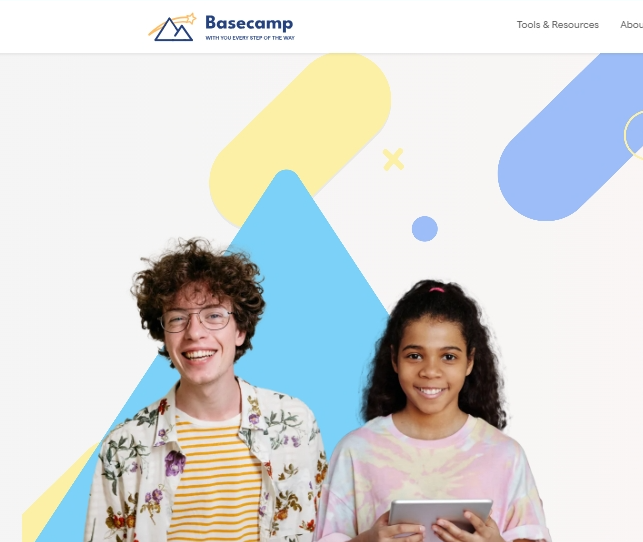
Please Follow us on Gab, Minds, Telegram, Rumble, Gettr, Truth Social, Twitter
Parents in Frederick County were recently surprised by a message from the school system telling them this:
FREDERICK COUNTY, MD, September 10, 2024 – Greenspace Health, North America’s leader in transforming behavioral health services through Measurement-Based Care (MBC), and Frederick County Public Schools (FCPS) are proud to announce their strategic partnership to enhance the mental well-being of Frederick County students. With support from the Maryland Community Health Resources Commission’s (CHRC) Coordinated Community Supports Grant, Greenspace Health and FCPS are launching Basecamp, a comprehensive Population Health Platform designed to provide accessible and effective mental health support for students and parents/guardians across Frederick County. To learn more or to access the platform, please visit BasecampFCPS.com.
Basecamp aims to improve student wellness and equitable access to mental health resources by addressing the unique challenges faced by rural populations and young people within Frederick County. This digital-front-door ensures that all students have access to the behavioral health supports and self-guided resources that are most appropriate for their needs. In doing so, Basecamp will remove geographical barriers to resource access and improve mental health support and outcomes for students and their families.
Key features of Basecamp include:
“The percentage of high school students feeling sad and hopeless, or experiencing suicidal thoughts and behaviors, has increased significantly across the US over the past ten years, according to the Centers for Disease Control and Prevention’s Youth Risk Behavior Surveillance System. This underscores the urgent need to continually improve mental health support services for Frederick County students,” said Lynn Davis, LCPC, Supervisor of Mental Health Services at FCPS. We are excited to partner with Greenspace Health on this initiative. Implementing Basecamp will give us the opportunity to expand the range of behavioral health supports in our community and ensure that students and families have timely access to the services they need.”
“We are thrilled to partner with Frederick County Public Schools to launch Basecamp, a groundbreaking initiative that embodies our shared commitment to substantially enhance student well-being,” said Jesse Hayman, Chief Growth Officer, Greenspace Health. “FCPS serves a vast rural area that faces unique challenges. By building and launching Basecamp, we can ensure every student in Frederick County receives timely access to the most appropriate service or resource for their unique challenges. This initiative will have a meaningful impact on health equity and wellness across Frederick County, and set a new standard for student mental health support.
Funding was made available by the Maryland General Assembly under the Blueprint for Maryland’s Future (Ch. 36 of 2021). “The Consortium is pleased to partner with Greenspace to support the mental health and wellbeing of students in Frederick County,” said Consortium Chair David Rudolph. “We look forward to working with Greenspace as they implement this grant.”
For further details on the Basecamp platform and the partnership between Greenspace Health and Frederick County Public Schools, please visit BasecampFCPS.com.
Sounds wonderful, doesn't it? If you are a student in Frederick County, it seems all your worries, anxieties, problems, concerns, etc. can be solved with this one amazing app. Load it on your phone, log in, and track your mental attitude, emotions, etc. for every day. Now, instead of knowing how you feel, you can have that information quantified through this app. You can find "self-guided" resources on just about everything for every child at every grade level, even elementary students. Here are some of these resources:
Tools & Resources - Basecamp (basecampfcps.com)
Some of the topics seem innocuous. Sound apps for sleeping, tips for handling stress and anxiety, even how to work with ADHD may be helpful for kids. There are resources for parents as well.
One of the worst parts of the app is that a student will be given mental health surveys, tests and tools to constantly assess their mental state constantly:
Here's the page students go to when they access the app:
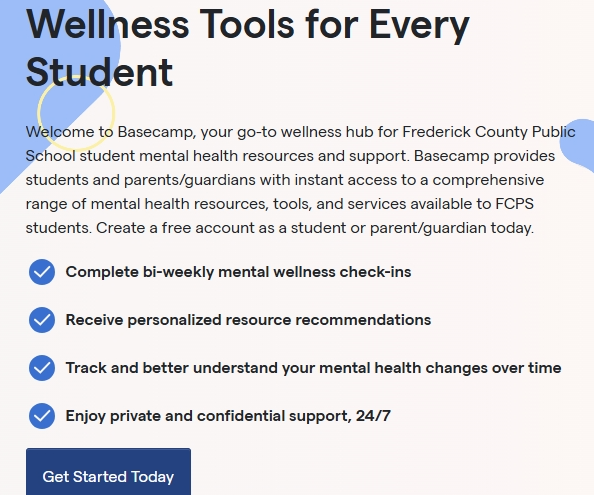
When a student accesses the app, they get this page. Students can go here and check in twice a week regarding their "mental health." What does that mean? It means they check in with routine completion of surveys. However, it's not clear who they "check in" with. Is it just an AI generated counselor or response bot? Is it their high school counselor? The Health Department? Who gets this information? How do they check in?
Here is a graph the app provides each child (and whoever else gets this information) regarding their mental health:
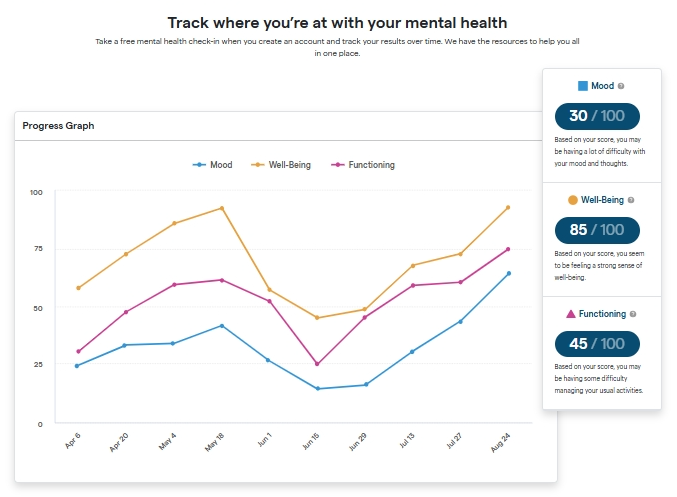
Not only that, now the student gets a "score" every two weeks to show them how they are doing with their mental health. So many problems here. First, do we really want adolescents being told by some algorithm how good their mood, well-being, and functioning is? I remember when we had these people called parents, family and friends who helped their children with that. Oh, and they were HUMAN, not computerized counselors.
Imagine you are a 15-year-old girl, and you have done your bi-weekly mental health survey. You feel okay, maybe a little stressed about a test in Algebra, and you find out that your scores on "mood" and "functioning" are really low. What do you do? If you were feeling okay, you might suddenly decide you DON'T really feel that good. In fact, you decide you feel pretty bad. The app suddenly CHANGES your mental health instead of assessing it.
Picture another child, a 14-year-old boy who is already feeling low. Maybe he had a fight with his parents that morning and is angry at the world. He views his bi-weekly assessment, and his scores come back at the very bottom. He suddenly sees that things are WORSE than he thought because the app told him so. What will he do? The options he creates are probably not good for him or anyone. Again, the app may actually drive this boy to violent acts.
Some will say that seeing low scores will motivate these students to seek help from their school counselors and that this could possibly prevent problems at school. However, this assumes that teens will use the information on the app wisely. Anyone who has raised teens or worked with them knows that this is not how it usually works. The adolescent brain is in a time of changing phases and development. Many times, that development elicits emotional rather than logical responses to input. This is why social media bullying and online sexual grooming is so effective with teenagers.
Neurocognitive bases of emotion regulation development in adolescence - PMC (nih.gov)
Their desire to belong and be seen as accepted overrides common sense at time, causing them to think and do things no adult would. Now they have a "mental health score" on an app that will define and determine whether they should or shouldn't consider themselves okay.
Although the company boasts that using the app for bi-weekly check ins provides "Mental health progress visualizations (that) will help students and parents/guardians have a strong understanding of their, or their child’s, mental health changes over time and identify life factors that may be positively or negatively impacting their wellbeing." Imagine that, a 24/7 assessment of each child's mental health changes. Can you imagine the roller coaster parents will observe? How many parents will become overly concerned and protective because of this data? How many will approve of anti-depressant medications for their child if given the chance? How many students will get the drugs without parental knowledge or consent?
If a child looking at their analysis isn't enough, imagine your teenager going to this page:
Depression Test with Instant Results (healthcentral.com)
There is a disclaimer that says this is not a "medical test." However, will an adolescent understand that caveat? Or will that young person take the test at face value and decide he/she is depressed. And their parents may not know.
Also important is where the data collected by the app or associated web pages goes.
According to the app, the app uses the data received to connect your child to the school counselor who can also connect your child with other mental health services. Yes, they can and will do this without parental knowledge OR consent. Where else does the data go? While the app promises security, it does not promise confidentiality. Here is their statement on security:
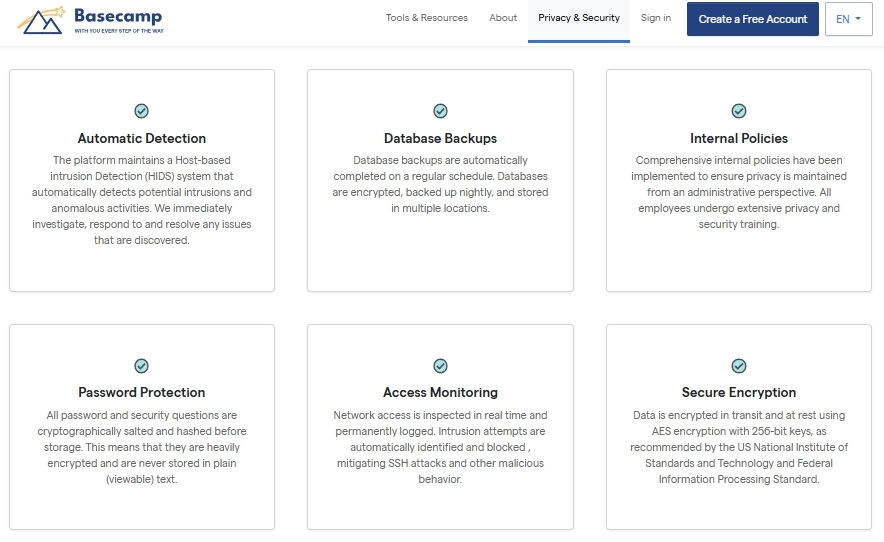
As we have seen in the past with electronic information, it doesn't always go where we think it goes. Data mining, anyone? Let's not forget that hackers exist.
The worst part of all is that YOU the parent, cannot opt your child out of using the app or restrict your child's access on the app. And it's all perfectly legal under Maryland law. As one parent put it, sending your child to school sends them into this fire.
While all the districts in Maryland may not be using this app right now, it and others like it will eventually be used in other school systems as well. The Blueprint for Maryland's Future is bringing the community school model and more school-based health centers to schools. These centers will provide care to your child while you won't be aware of what medical and mental health interventions will be foisted on your child.
Frederick County may be the canary in the coal mine.
Extra Notes: Frederick County offers this app only at the middle/high school level. However, the app CAN be offered to elementary school students if a system desires that. The information available to elementary students about sexuality, intersectionality, and gender is unsettling. When someone goes to the page below, they can pick the grade level, people who will use it, topic and resource type. The one below is the lowest level on gender/sexuality for students:
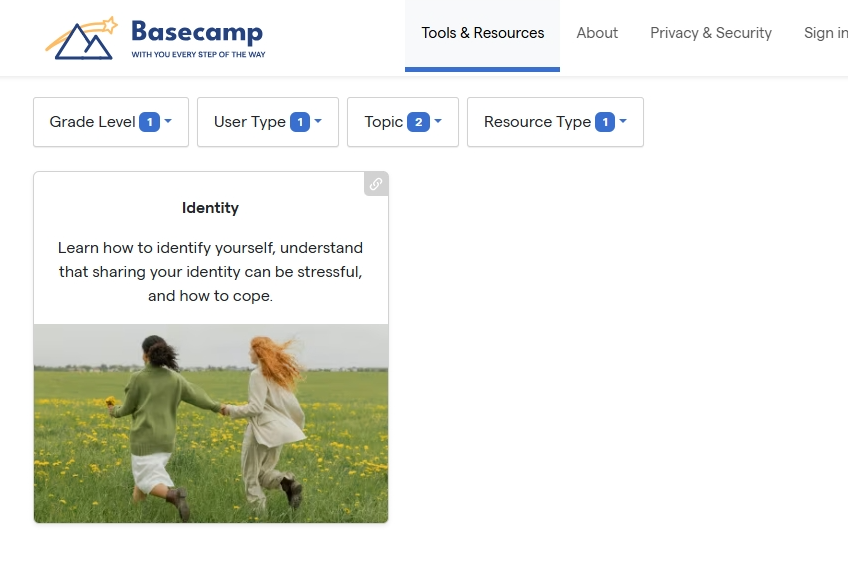
This is the page that link goes to:
Identity - Change 2 Chill (changetochill.org)
The above selection was for elementary aged students. Here is more of what can be found at this page:
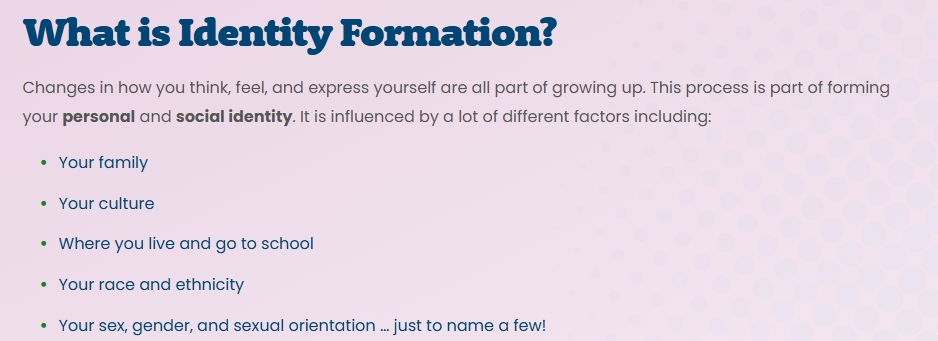


Below is Destiny's "bio":
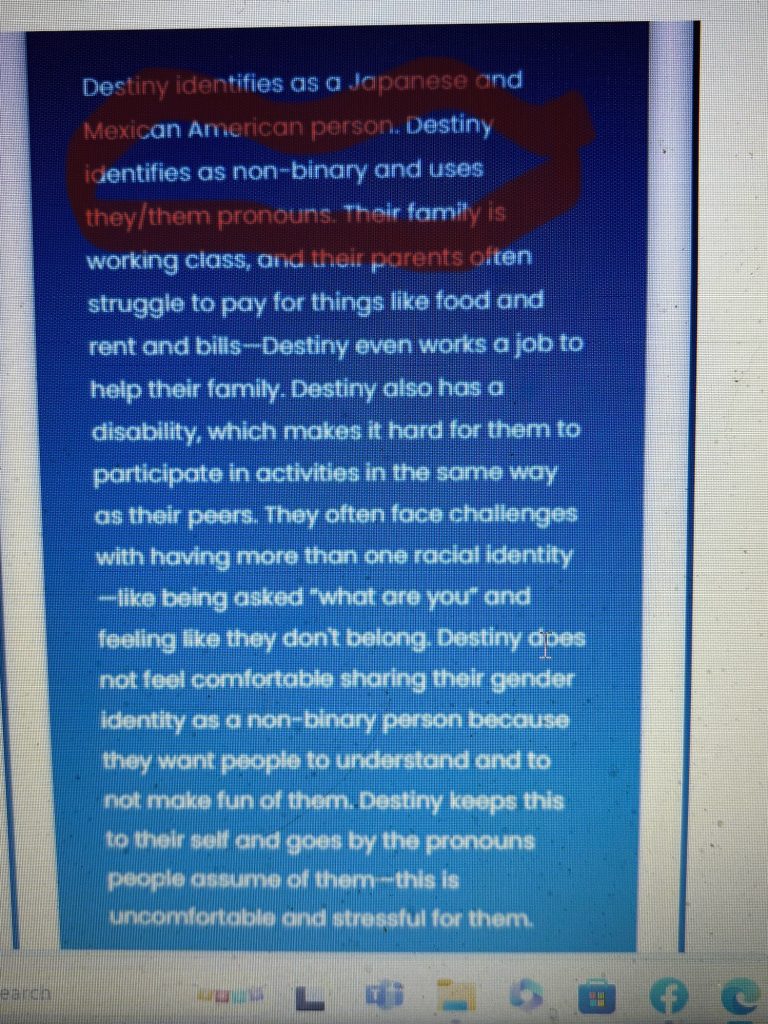
Is it really necessary that elementary children know what "non-binary" is and what pronouns Destiny uses? According to this app, yes.
Of course, the other two people shown are "people of color" and are described are "oppressed" while the White character, Ben, is "privileged." The teaching of stereotypes is first and foremost.
Here is the lesson teachers can use:
intersectionality.pdf (changetochill.org)
Imagine your child filling out the answers on that worksheet.
Parents, pay attention! This app could be in your school district soon.